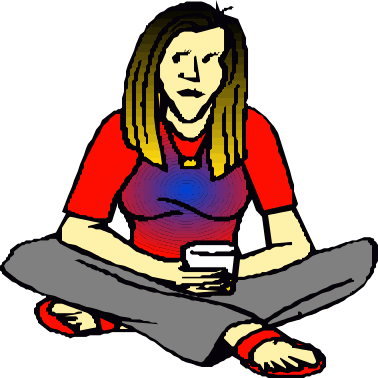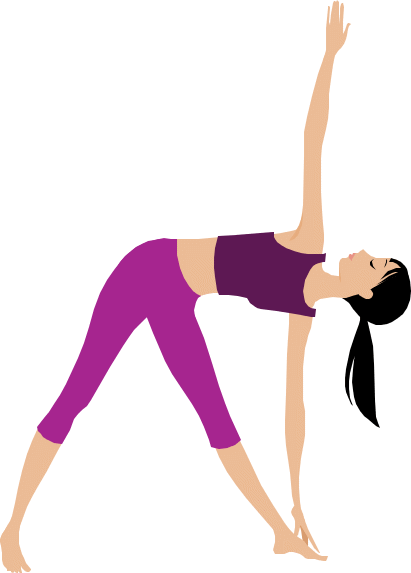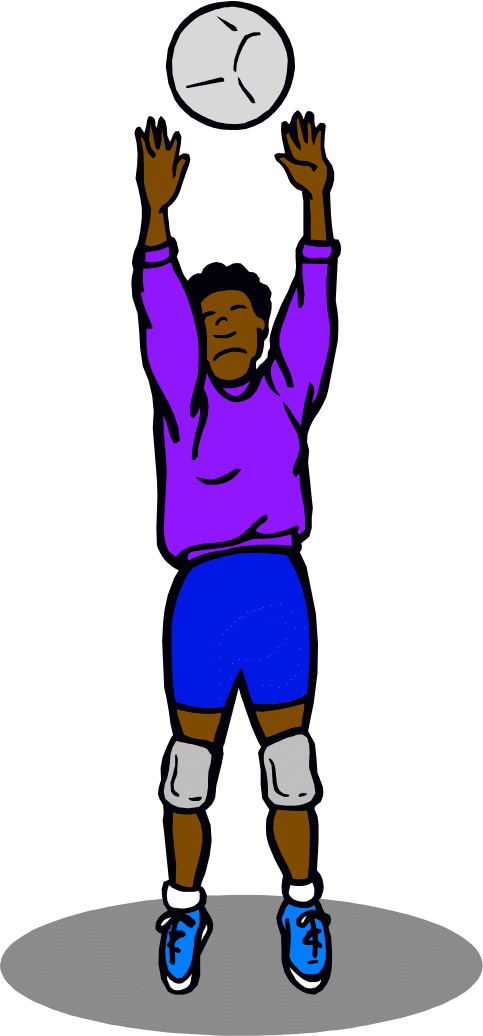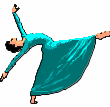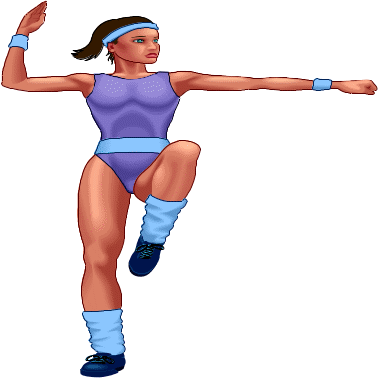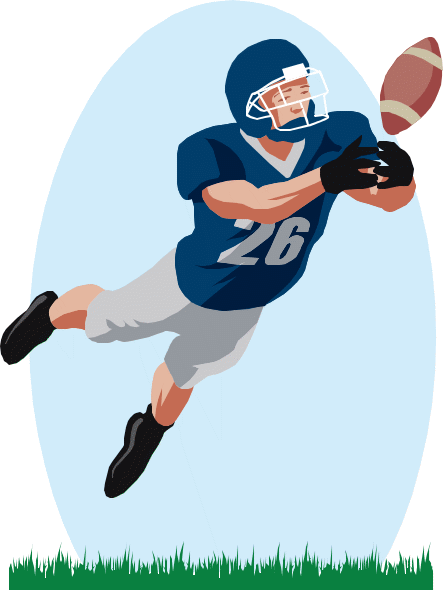Young Adults
NEXT Generation Health Study - NICHD
Attachment 7 Physical Activity Recall 2012
Young Adults
OMB: 0925-0610
7DPAR Instructions and Intensity Scale
Public reporting burden for this collection of information is estimated to average 50 minutes per response, including the time for reviewing instructions, searching existing data sources, gathering and maintaining the data needed, and completing and reviewing the collection of information. An agency may not conduct or sponsor, and a person is not required to respond to, a collection of information unless it displays a currently valid OMB control number. Send comments regarding this burden estimate or any other aspect of this collection of information, including suggestions for reducing this burden, to: NIH, Project Clearance Branch, 6705 Rockledge Drive, MSC 7974, Bethesda, MD 20892-7974, ATTN: PRA (####-####). Do not return the completed form to this address.
Instructions for completing the 7DPAR
Please read the instructions carefully.
Please be as accurate as possible.
If you have questions, please call The NEXT Research Team at toll-free 1-866-864-9972.
7DPAR Instructions and Intensity Scale
Instructions: The purpose of this questionnaire is to approximate the amount of physical activity that you perform. The name of each day that you will describe is in the top left-hand corner of each time sheet.
For each time period, write in the activity number that corresponds to the main activity you actually performed during that particular time period. If you did more than one activity during the 30 minutes, record the activity that you did for most of the time. The activity numbers are found on the Coding Instructions Sheet. Note that the first eighteen (18) activities are shaded.
Check Column H if you wore the Actiwatch and Column I if you wore the accelerometer during this time period.
Fill in the time you woke up and the time you went to sleep in Column J. Before each time you enter, add “A” for awake or “S” for sleep.
If the activity is shaded on the Coding Instructions Sheet, then you do not need to fill columns B through G and you should go to the next time period. Otherwise, proceed with 5 to 7 below.
For activities 19-71, rate how physically hard each activity was. Place a “” in the timetable to indicate one of the following intensity levels for each non-shaded activity.
Indicate where you performed each non-shaded activity by writing in the corresponding number found on the Coding Instructions Sheet.
Write the corresponding number for with whom you performed the non-shaded activity.
Intensity Scale:
|
|
|
|
•Moderate - Normal breathing and some movement.
|
|
|
|
• Hard - Increased breathing and moderate movement.
|
|
|
|
|
|
|
|
Sample activity time sheet
The table below shows the correct way to fill out the activity time sheets. Note that only one intensity level is checked for each unshaded, physical activity. Please check Column H if you were wearing the accelerometer (on) during each time period. Fill in what time you woke up in the morning and what time you went to bed at night in Column I.
|
A
|
B
|
C
|
D
|
E
|
F
|
G
|
H |
I
|
J |
|
Activity Number |
Light |
Moderate |
Hard |
Very Hard |
Where |
With Whom |
Acti-watch On |
Accelero-meter On |
Awakening Sleeping (A=awake; S=sleep) |
5:00-5:30 |
17 |
|
|
|
|
|
|
|
|
|
5:30-6:00 |
17 |
|
|
|
|
|
|
|
|
|
6:00-6:30 |
17 |
|
|
|
|
|
|
|
|
|
6:30-7:00 |
15 |
|
|
|
|
|
|
|
|
A-6:35 |
7:00-7:30 |
14 |
|
|
|
|
|
|
|
|
|
7:30-8:00 |
23 |
|
|
|
|
2 |
1 |
|
|
|
8:00-8:30 |
18 |
|
|
|
|
|
|
|
|
|
8:30-9:00 |
18 |
|
|
|
|
|
|
|
|
|
9:00-9:30 |
21 |
|
|
|
|
2 |
3 |
|
|
|
9:30-10:00 |
21 |
|
|
|
|
2 |
3 |
|
|
|
10:00-10:30 |
18 |
|
|
|
|
|
|
|
|
|
10:30-11:00 |
62 |
|
|
|
|
2 |
3 |
|
|
|
11:00-11:30 |
17 |
|
|
|
|
|
|
|
|
S-11:20 |
11:30-12:00 |
17 |
|
|
|
|
|
|
|
|
|
12:00-12:30 |
17 |
|
|
|
|
|
|
|
|
A-12:25 |
12:30-1:00 |
1 |
|
|
|
|
|
|
|
|
|
Coding Instructions Sheet
‘Activity’ Numbers:
EATING
Eating a meal
Snacking
AFTER SCHOOL/SPARE TIME/HOBBIES
Church
Hanging around
Homework
Listening to music
Music lesson/playing instrument
Playing video games/surfing internet (Xbox; Playstation)
Texting/emailing
Reading
Shopping
Talking on phone
Watching TV or movie videos
SLEEP/BATHING
Getting dressed
Getting ready (hair, make-up, etc.)
Showering/bathing
Sleeping/napping
SCHOOL
Lunch/free time/study hall
Sitting in class
Club/student activity
Marching band/flag line
P.E. Class
TRANSPORTATION
Riding in a car/bus/airplane/trolley/boat
Travel by walking
Travel by bicycling
WORK
Working (e.g., part-time job, child care)
Doing house chores (e.g., vacuuming, dusting, washing dishes, animal care, etc.)
Yard Work (e.g., mowing, raking)
PHYSICAL ACTIVITIES
Aerobics, jazzercise, water aerobics, taebo
Basketball
Bicycling, mountain biking
Bowling
Broomball
Calisthenics / Exercises (push-ups, sit-ups, jumping jacks)
Cheerleading, drill team
Dance (at home, at a class, in school, at a party, at a place of worship)
Exercise machine (cycle, treadmill, stair master, rowing machine)
Football
Frisbee
Golf / Mini-golf
Gymnastics / Tumbling
Hiking
Hockey (ice, field, street, or floor)
Horseback riding
Jumping rope
Kick boxing
Lacrosse
Martial arts (karate, judo, boxing, tai kwan do, tai chi)
Playground games (tether ball, four square, dodge ball, kick ball)
Playing catch
Playing with younger children
Roller blading, ice skating, roller skating
Riding scooters
Running / Jogging
Skiing (downhill, cross country, or water)
Skateboarding
Sledding, tobogganing, bobsledding
Snowboarding
Soccer
Softball/baseball
Surfing (body or board) / Skimboarding
Swimming (laps)
Swimming (play, pool games – Marco Polo, water volleyball, snorkeling)
Tennis, racquetball, badminton, paddleball
Trampolining
Track & field
Volleyball
Walking for exercise
Weightlifting
Wrestling
Yoga, stretching
Wii or Dance, Dance, Revolution
Other
‘Where’ Numbers:
1 – HOME / NEIGHBORHOOD (yours or a friend’s)
2 – SCHOOL (including gym and grounds)
3 – COMMUNITY FACILITY (for example: Park, Playground, Rec Center, Church, Dance Studio, Field or Gym)
4 – OTHER OUTDOOR PUBLIC AREA (for example: Beach, River, Levee, Ski Area, Camping Area)
5 – OTHER (for example: Mall, Doctor’s Office, Movies)
‘With Whom’ Numbers:
0 – BY YOURSELF
1 – WITH 1 OTHER PERSON
2 – WITH SEVERAL PEOPLE (but NOT an organized program, class or team)
3 – WITH AN ORGANIZED PROGRAM, CLASS or
TEAM
The Next Generation Health Study
Physical Activity Diary Instruction Script
Hello. My name is _______ and I am a health researcher from the NEXT Generation Health Study team. I am going to give you a Physical Activity Diary. Using this diary, we need you to write down everything you do from 6:00AM through 12:00AM at night. You will complete this diary every day that you are wearing the activity monitor and sleep watch. This means you will complete the diary for 7 FULL days beginning tomorrow.
We want to know what types of activities you do, how intense these activities are, and where and with whom you do them. We also want to know if you are wearing the activity monitor and the sleep watch. I’ll explain what those are after we review the diary. Finally, each day, we also want to know what time you woke up and what time you went to bed.
Let’s go through the instructions for completing the diary:
[Read instructions provided in the protocol].
The Intensity Scale is a guide to help you rate how physically hard each activity was for you. Keep in mind that the pictures are only a guide. The intensity at which a person plays basketball, for example, may vary greatly from person to person based on energy level, athletic ability, motivation, etc. The best indicator of intensity is how hard you are breathing while doing that activity – your level of exertion. Indicate the activity level that you feel best represents how physically hard each activity was for you, “Light”, “Moderate”, “Hard” or “Very Hard”.
[Sweep finger across pictures as you read the levels of intensity].
Now, I would like to go over the list of activities with you. What activities do you do most often?
[Highlight the codes most likely used by the participant]
In determining the appropriate code for all other activities, first consider which of these headings the activity falls into, and then identify the code that best fits your situation.
Do you have any questions?
Let’s practice. First let’s review the examples provided in the booklet. (Review example provided in the booklet). Now, I am going to ask that you complete a practice activity time sheet based on what you did from the time you woke up yesterday until 1:00 pm yesterday afternoon. Remember, only one activity per line, no ditto marks, arrows, and no words in the columns. (Hand participant a pencil).
If there are errors: Good job, just remember… [Identify and correct errors appropriately].
No errors: Good job! Remember to fill out your Physical Activity Diary every day for the next 7 days, starting tomorrow, and feel free to call the NEXT toll-free number of you have any questions while you are doing it!
| File Type | application/msword |
| File Title | 3DPAR Instructions and Intensity Scale |
| Author | Susan Greer |
| Last Modified By | iannottr |
| File Modified | 2012-09-18 |
| File Created | 2012-09-18 |
© 2026 OMB.report | Privacy Policy

